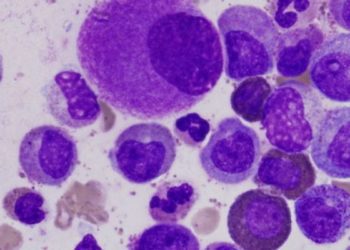Angiotensin receptor blockers may reduce the incidence of epilepsy in patients with hypertension
1. Amongst a cohort of individuals with arterial hypertension, those who were taking angiotensin receptor blocker antihypertensives had the lowest incidence of epilepsy.
2. The highest incidence of epilepsy amongst patients with medication-controlled arterial hypertension was in those taking calcium channel blockers or beta blockers.
Level of Evidence Rating: 2 (Good)
Study Rundown: Epilepsy is a chronic neurological condition characterized by the tendency to experience recurrent seizures. It is a chronic disease which may require lifelong medical therapy and can be refractory to treatment in some cases. In preclinical studies, it has been demonstrated that certain antihypertensive medications may be neuroprotective through modulation of the albumin-induced transforming growth factor cascade pathway in central neurons. Therefore, this study’s purpose was to retrospectively assess the association between epilepsy diagnoses and the treatment of hypertension with various pharmaceutical classes.
In total, 168 612 patients were included, with 42 153 in each subgroup of antihypertensive medication use. The incidence of epilepsy was lowest amongst patients taking ARBs at 1-, 3- and 5-year time points and highest amongst those taking BBs and CCBs. ARBs were significantly reduced with a lower risk of epilepsy; in the analysis of individual drug effects, losartan was significantly protective against epilepsy compared to beta blockers. There was no significant difference in epilepsy incidence based on hypertension severity.
The present study by Doege et al. demonstrated that hypertension management with ARBs may be associated with a decreased risk of epilepsy, particularly in comparison with other classes of antihypertensive, including beta blockers and calcium channel blockers. A strength of this study includes the large sample size and matching of cohorts based on demographics and known risk factors for the outcome. A primary drawback of this work was its retrospective nature, making it difficult to control for confounding. The findings reported here should be studied in a prospective setting to assess their applicability to clinical practice better.
Click here to read this study in JAMA Internal Medicine
Relevant reading: Understanding mechanisms of drug resistance in epilepsy and strategies for overcoming it
In-Depth [retrospective cohort]: Data from this study was gleaned through a standardized national database in Germany called the IQVIA, accounting for 3% of outpatient medical practices nationally. Adult patients with a diagnosis of arterial hypertension who were taking one of the following classes of antihypertensives were included: calcium channel blockers (CCBs), beta-blockers (BBs), angiotensin-converting enzyme inhibitors (ACE-i), and angiotensin receptor blockers (ARBs). Propensity scores were assigned based on age, sex, index year and the presence of one of several diagnoses independently associated with epilepsy: diabetes, stroke, Parkinson’s, dementia or mild cognitive impairment and head injuries.
The incidence of epilepsy diagnosis amongst patients taking ARBs was as follows: 0.27% at 1 year, 0.63% at 3 years, and 0.99% at 5 years. The incidence of epilepsy diagnosis amongst patients taking CCBs was 0.38% at 1 year, 0.93% at 3 years, and 1.48% at 5 years. At the same time points, the incidence of epilepsy amongst patients taking BBs was 0.38%, 0.91% and 1.47%, respectively. The hazard ratio for epilepsy risk in patients taking ARBs compared to all other antihypertensives was 0.77 (95% confidence interval 0.65-0.90). The hazard ratio for epilepsy with losartan specifically, compared to BBs, was 0.40 (0.22-0.75) and 0.43 (0.23-0.80) versus CCBs.
Image: PD
©2022 2 Minute Medicine, Inc. All rights reserved. No works may be reproduced without expressed written consent from 2 Minute Medicine, Inc. Inquire about licensing here. No article should be construed as medical advice and is not intended as such by the authors or by 2 Minute Medicine, Inc.









